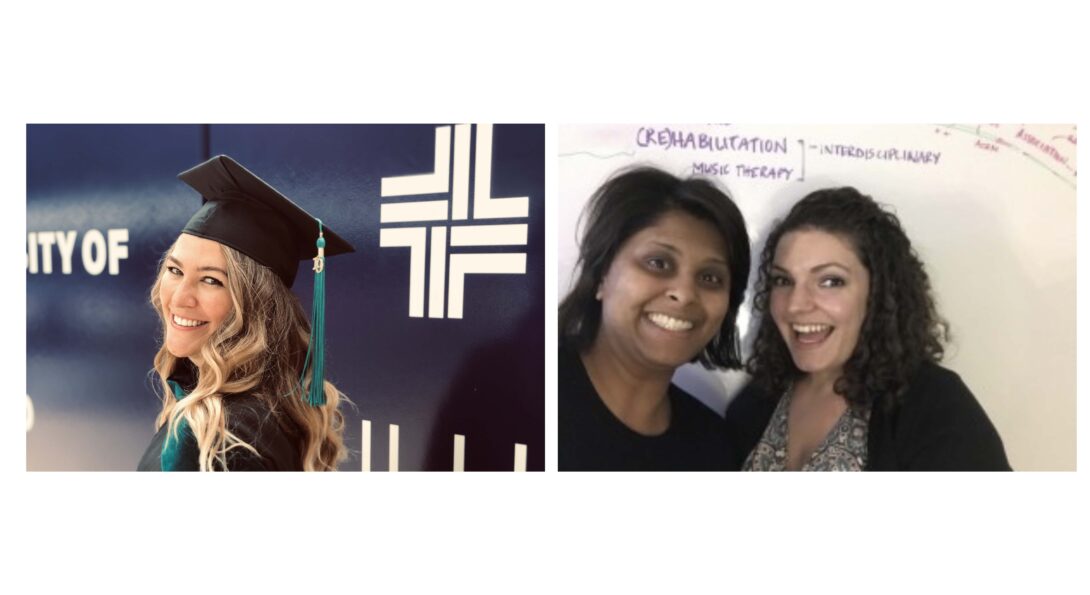CPERL alumnae pioneering the way

Our lab strives to maintain connections to CPERL alumnae, Andrea Gurga and Jessica Jarvis, as they advance in their career trajectories and accomplish next-level, professional milestones.
Andrea has moved to Colorado and was hired at a multidisciplinary outpatient clinic that services children and their families from 2-17 years old, and soon expanding to work with people across the lifespan. She will be exploring a variety of interventions and areas of occupational participation including equine movement and farm therapy. Who would have thought this Chicago native would be rounding up chickens as an IADL?!
Andrea Shares: CPERL and my OTD helped to guide me as a new therapist to crave connection, collaboration, and to challenge the status quo of pediatric practice and research engagement. Because I was mentored and surrounded by so many strong therapists and scholars, I now seek that community, growth, and to serve others in that capacity to advance the field of occupational therapy and (re)habilition. Watching my mentors and colleagues in CPERL strive to be excellent, dynamic, flexible, and resilient in the face of adversity, as well as graceful and proud in their successes has shaped me in ways I take forward in my work as well as personally.
Jessica Jarvis is an assistant professor in the Department of Physical Medicine and Rehabilitation at the University of Pittsburgh. Her program of research aims to improve the efficacy and equity of pediatric rehabilitation for children who are chronically and critically ill. Jessica was awarded a K23: Mentored Patient-Oriented Research Career Development Award from NICHD, which provides an intensive, supervised training experience for individuals with a clinical doctoral degree and on a path to establish an independent clinical research career.
Jessica Shares: My time at CPERL helped me to define my professional mission and develop values or ways of thinking about opportunities to achieve this mission. I learned to be firm on my goal, but flexible on my methods. A part of my career training plan is to develop a research team or laboratory that is diverse, equitable, and inclusive. I plan to engage trainees across stages of their education in this work as an opportunity to mentor while being mentored. Not only do I find this fulfilling, but DEI labs elevate the quality of the science and serves to prepare the next generation of researchers.